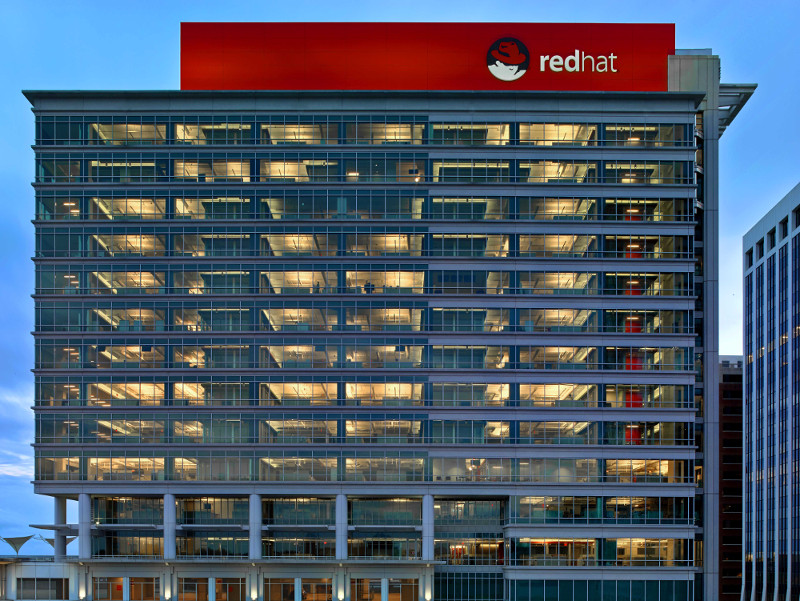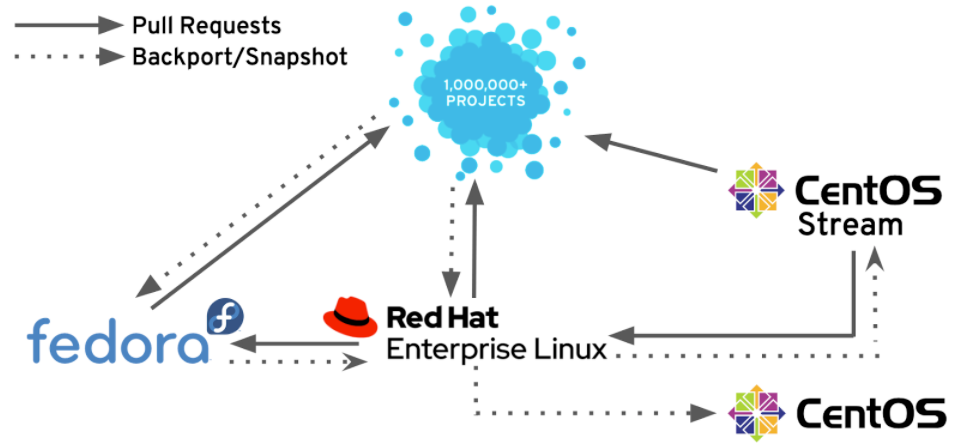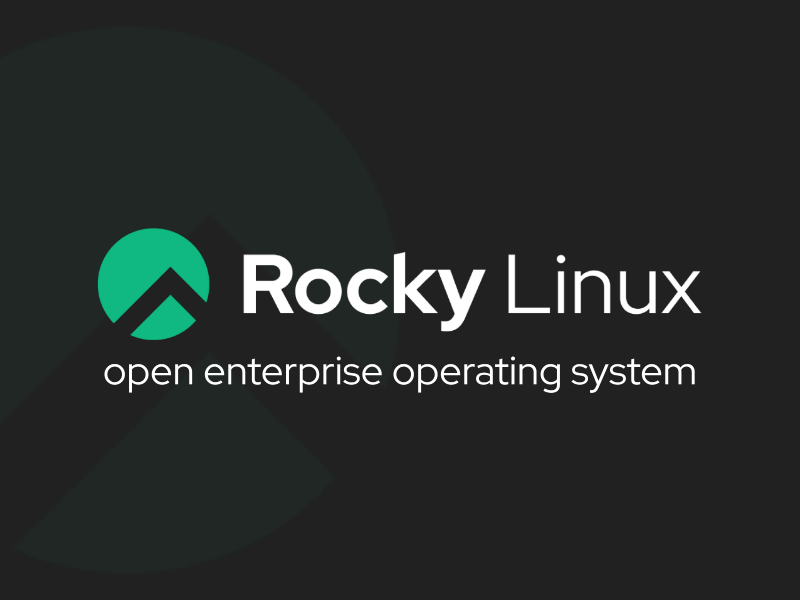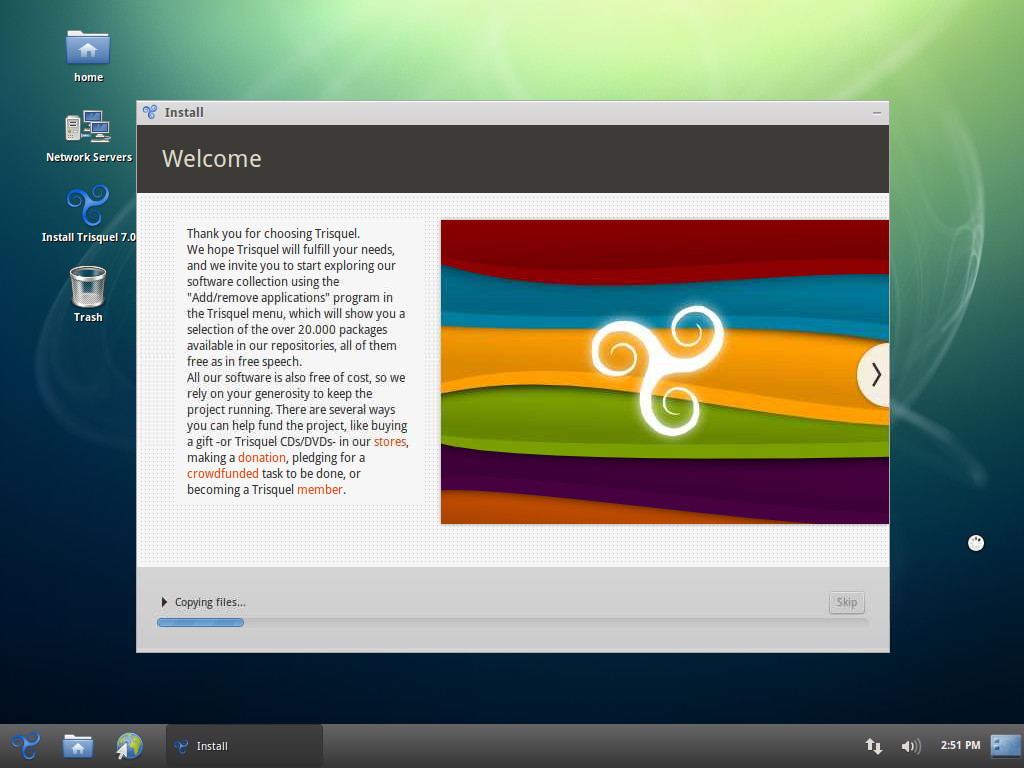 In the world of Linux, open-source principles have been the backbone of community collaboration and innovative software development for decades. However, recent changes by Red Hat have shaken these foundations. The company announced in June 2023 that it would restrict access to the Red Hat Enterprise Linux (RHEL) source code to only its paying customers. This move, unprecedented in the Linux ecosystem, has sparked widespread controversy and has the potential to significantly alter the dynamics of downstream distributions.
In the world of Linux, open-source principles have been the backbone of community collaboration and innovative software development for decades. However, recent changes by Red Hat have shaken these foundations. The company announced in June 2023 that it would restrict access to the Red Hat Enterprise Linux (RHEL) source code to only its paying customers. This move, unprecedented in the Linux ecosystem, has sparked widespread controversy and has the potential to significantly alter the dynamics of downstream distributions.
RHEL's source code has been a crucial resource for numerous downstream distributions, including the likes of Rocky Linux and AlmaLinux. These distributions rely on public RHEL source code to ensure compatibility, and this sudden restriction threatens their very existence. However, it appears that these communities are not ready to back down. Notably, Rocky Linux has found a workaround, leveraging cloud images to bypass the imposed restrictions.
Summary of CentOS Blog:
"The end dates are approaching for CentOS Stream 8 and CentOS Linux 7. Users need to start planning system migrations and consider options like CentOS Stream 9, converting to RHEL 8, or exploring other operating systems. After May 31, 2024, CentOS Stream 8 will be archived, and no further updates will be provided. Similarly, CentOS Linux 7 reaches its end of life on June 30, 2024, with no more updates available. It's crucial to migrate containers and establish a regular update strategy to prevent security risks and potential costs. Always remember to set resource limits, autoscaler limits, and update containers regularly."
While these developments signal resilience among the impacted distributions, they also raise questions about the future direction of Red Hat and its relationship with the broader Linux community. Will this decision lead to legal challenges due to the principles of GPL licensing, which encourages free code sharing? Will it drive the community away from RHEL, leading to the rise of alternative distributions and a decentralization of the Linux ecosystem?
These possible outcomes make it clear that we are at a crossroads, with the decisions made in the coming months likely to have long-lasting impacts on the Linux world. In this article, we delve into the implications of Red Hat's controversial move, its impact on downstream distributions, the response from the Linux community, and what all this could mean for the future of open source software.
Background on RHEL's Decision
Red Hat Enterprise Linux, commonly known as RHEL, has long been a stalwart of the Linux community, offering a robust, enterprise-grade operating system that's used by businesses around the globe. Historically, Red Hat has made RHEL's source code publicly available in line with open-source principles, allowing for the creation of numerous downstream distributions that ensure compatibility with RHEL.
However, in a groundbreaking move in June 2023, Red Hat announced its decision to restrict access to RHEL's source code, making it available exclusively to paying customers. This decision marks a significant departure from the free software and open-source ethos, where code is freely available for anyone to use, modify, and distribute.
Richard Stallman, the founder of the Free Software Movement:
"Free software is a matter of liberty, not price.
To understand the concept, you should think of 'free' as in 'free speech',
not as in 'free beer'."
The rationale behind Red Hat's decision remains somewhat unclear. Some suggest that it is a move to protect their commercial interests, while others believe it could be a strategy to steer more users towards CentOS Stream, a distribution owned by Red Hat and positioned upstream of RHEL.

Whatever the reason, Red Hat's decision to restrict access to RHEL's source code represents a substantial shift in the company's approach to open-source software. This move has generated a significant amount of controversy and has far-reaching implications for the broader Linux ecosystem, particularly for downstream distributions like Rocky Linux and AlmaLinux that heavily rely on RHEL's source code.
Impact on Downstream Distributions
The impact of Red Hat's decision on downstream distributions is nothing short of substantial. Distributions such as AlmaLinux and Rocky Linux have been constructed around the freely available RHEL source code, providing 1:1 compatibility with RHEL. These distributions face significant challenges and potential reinvention in the wake of Red Hat's decision.
The first point of impact is the need for downstream distributions to rely on upstream source code. CentOS Stream, a Red Hat-owned distribution that exists upstream of RHEL, offers the only glimpse into the developments of RHEL. However, the code in CentOS Stream is considered unstable and still under active development, making it a less reliable source for downstream developers.
Secondly, the new restrictions are forcing downstream distributions to rethink their rebuild processes. Rocky Linux, for instance, has made it clear in the aftermath of the controversy that they intend to manually rebuild packages and develop efficient automated rebuild processes. This undoubtedly imposes an additional workload on the developers but also highlights their determination to continue providing RHEL-compatible distributions.
Alternative distributions like Debian and its derivatives are becoming increasingly popular in light of these changes, as some users begin questioning the future relevance of RHEL-based distributions. These distributions have consistently complied with the GPL and maintained open-source access, making them attractive alternatives for those seeking RHEL replacements.
Lastly, there is a genuine concern that some downstream distributions may discontinue their work entirely. The drastic shift in Red Hat's approach to open-source software has left many developers questioning their association with RHEL.
Red Hat's decision to limit access to RHEL's source code will bring profound changes to downstream distributions, ushering in a period of innovation, adaptation, and possible consolidation.
The Case of Rocky Linux
 Rocky Linux is a case worth focusing on because it showcases a strong and defiant response to Red Hat's decision. As a downstream distribution that relied heavily on the RHEL source code for 1:1 compatibility, Rocky Linux could have been disastrously impacted by Red Hat's decision to limit access to paying customers.
Rocky Linux is a case worth focusing on because it showcases a strong and defiant response to Red Hat's decision. As a downstream distribution that relied heavily on the RHEL source code for 1:1 compatibility, Rocky Linux could have been disastrously impacted by Red Hat's decision to limit access to paying customers.
However, the Rocky Linux team found a creative solution to bypass these restrictions and continue providing their users with an up-to-date, reliable operating system. Instead of folding under pressure, they have sought to maintain their access to the source code by using readily available cloud images to spin up a RHEL system and download their sources—an automated process that allows them to continue their work.
This process, while more complex and possibly requiring additional resources, demonstrates the tenacity of the Rocky Linux team and their commitment to the open-source philosophy. It also shows how even restrictive measures can lead to innovative solutions that ensure the continuity and growth of open-source projects.
Rocky Linux team:
"After tireless efforts by team members, we have completed update composes for Rocky Linux 8 and 9, including all the updates we were missing, also including all errata information. We have also completed test upgrades from 8 and 9 machines to staging without issue. Updates should work as usual via:
dnf -y update
We further developed a process for continuing to supply updates as they are released. Fortunately we already had the Peridot build system in place to manage the additional imports and automate them."
Nevertheless, this workaround does not negate the challenge that Red Hat's decision has imposed on the Rocky Linux project. The team will have to invest time and resources in continuously adapting to changes in RHEL and maintaining their rebuild processes. It's a challenge that calls into question the long-term sustainability of this workaround and the viability of other similar distributions that face the same challenge.
Rocky Linux's response to Red Hat's decision is emblematic of the broader sentiment within the open-source community—a sentiment of resilience, adaptability, and unwavering commitment to the principles of open-source software, even in the face of adversity.
The Reaction of the Linux Community
The Linux community, widely known for its passion and advocacy for open-source principles, had mixed reactions to Red Hat's decision to restrict access to the RHEL source code.
Many within the community expressed disappointment and frustration, viewing Red Hat's move as a departure from the spirit of open source, which emphasizes transparency, collaboration, and unrestricted access. Red Hat's new policy was seen as a damaging move that could undermine trust, as well as a potential deterrent for new and ongoing contributions to open-source projects.
However, it wasn't all negative. Some community members, while not particularly pleased with Red Hat's decision, recognized the company's right to monetize its product and understood the commercial logic behind it. They pointed out that Red Hat, as the creator and owner of RHEL, was within its rights to control access to the source code.
A subset of the community, those involved in projects that depended heavily on RHEL sources, took a more pragmatic approach. Rather than just expressing discontent, they focused on finding solutions. The case of Rocky Linux serves as a prime example of this resilience, showcasing how they found a way to circumvent the restrictions.
The shift in policy has also spurred a wave of interest in alternative distributions. Distros such as Debian and its derivatives have been garnering increased attention, particularly among professionals and system administrators, as they offer stable and long-standing commitment to open-source principles.
The reaction of the Linux community, though varied, collectively highlights the robust discourse and diversity of thought within this space. It also underscores the community's overarching commitment to the values of openness and free access, principles that are seen as integral to the growth and evolution of Linux and other open-source software.
Potential for Legal Challenges
The legal landscape surrounding Red Hat's decision to restrict source code access to paying customers is complex and has generated considerable discussion. The primary concern hinges on the applicability and interpretation of the GNU General Public License (GPL), under which much of the Linux kernel and many GNU utilities (integral to distributions like RHEL) are licensed.
The GPL is intended to ensure that software is free, in the sense that users have the freedom to run, copy, distribute, study, change, and improve the software. It's a "copyleft" license, meaning that derivative work can only be distributed under the same license terms. This principle ensures that freedoms provided by the GPL cannot be stripped away.
GNU General Public License (GPL):
"The GPL is a free software license that guarantees users the freedom to use, modify, and distribute software. It ensures that the source code of the software is available to everyone, and any modifications or enhancements made to the software must also be released under the same license. This promotes collaboration, transparency, and the sharing of knowledge within the software community."
At the heart of potential legal challenges is the question: does Red Hat's decision to restrict access to the RHEL source code infringe upon the freedoms guaranteed by the GPL? The answer isn't straightforward. Technically, Red Hat has not denied anyone the right to run, modify, or distribute the RHEL code; they have just restricted who can access it directly from them. However, this move certainly seems against the spirit of the GPL, which promotes free and unrestricted access to source code.
Legal experts in the open-source community have weighed in, but there is yet to be a consensus. Some argue that as long as Red Hat complies with the GPL (for instance, by providing source code to its customers), they are not in violation. Others contend that the restrictive policy may be at odds with the GPL's intent, even if it doesn't explicitly violate its letter.
Whether these debates will crystallize into formal legal challenges remains to be seen. It will largely depend on whether affected parties, such as downstream distributions or their users, choose to pursue legal recourse. The outcome of any such challenges could have far-reaching implications not just for Red Hat and its downstream distributions, but for the broader open-source community as well.
Future of Red Hat and RHEL
The future of Red Hat and RHEL in the face of these controversial changes is complex and rife with speculation. One thing, however, is certain: the decisions made by Red Hat will have long-lasting implications for their reputation, market position, and the overall trust within the open-source community.
On a practical level, Red Hat's decision to restrict source code access to RHEL could have several effects. It may result in a loss of users and contributors, particularly among those who have relied on freely available source code. This could manifest in a decline of market share and influence within the open-source ecosystem. If large portions of the community feel alienated and move to other distributions, it could result in less feedback, fewer bug reports, and reduced innovation for RHEL.
From a financial perspective, the move could either harm or benefit Red Hat. On the one hand, it could lead to increased revenue from new customers who need RHEL source code and are willing to pay for it. On the other hand, the potential loss of market share and goodwill might negatively impact Red Hat's financial performance in the long run.
On a broader level, the controversy might spur changes within the Linux and open-source community. It may prompt a reevaluation of licensing terms, especially concerning access to source code and how it's shared. The event could also spur more investment in alternative distributions, further decentralizing the Linux landscape.
Regardless of the potential repercussions, the current controversy surrounding Red Hat and RHEL marks a significant moment in the Linux ecosystem. It underscores the ongoing tension between the commercial imperatives of technology companies and the principles of open-source software. Whether this event will trigger a course correction or a further drift away from open-source principles, only time will tell.
Alternative Distributions and the Future of Linux
As we move forward in the wake of the Red Hat controversy, it is essential to consider the wealth of alternative distributions that exist within the vast Linux ecosystem. Popular distributions such as Debian and its derivatives have been around for decades, offering a stable, open-source alternative with a track record of community support and transparency.
However, it's crucial not to overlook the smaller, community-oriented distributions, as they hold considerable potential. Distros like AlmaLinux and Rocky Linux are demonstrating their resilience and determination to continue providing reliable alternatives to RHEL, despite the recent challenges.
 Going even deeper into the roots of the GNU/Linux ethos, we encounter LiGNUx distributions like Trisquel and PureOS. These distros are unique in that they are composed entirely of free software, showcasing an unwavering commitment to user freedom and community participation. Such distributions serve as a reminder of the free software principles upon which the Linux community was built. The principles that encourage every user to use, study, share, and modify the software represent a collective commitment to shared growth.
Going even deeper into the roots of the GNU/Linux ethos, we encounter LiGNUx distributions like Trisquel and PureOS. These distros are unique in that they are composed entirely of free software, showcasing an unwavering commitment to user freedom and community participation. Such distributions serve as a reminder of the free software principles upon which the Linux community was built. The principles that encourage every user to use, study, share, and modify the software represent a collective commitment to shared growth.
The recent changes in the Linux landscape signal a shift in the balance of the open-source world, with an increasing emphasis on corporate interests and profit. However, the response from smaller distributions and the Linux community at large suggests a strong desire to uphold the founding principles of freedom and collaboration.
The future of Linux may well depend on how well we can realign with these principles while navigating the realities of the modern software industry. Perhaps it's time for us as a community to reconsider the importance of free software, community-driven projects, and a collective approach to development. This could be the pivotal moment to reestablish a Linux environment that prioritizes community and freedom over profit and corporate dominance.
Summary and Analysis
The recent decision by Red Hat to limit access to RHEL source code to its paying customers has unquestionably sent ripples across the Linux ecosystem. In this seismic shift, the first and foremost impacted parties are the downstream distributions that were hitherto leveraging RHEL's source code for their own builds, such as Rocky Linux and AlmaLinux.
However, as we've explored, these projects have shown remarkable adaptability in the face of adversity. The Rocky Linux project, for example, has already started developing new procedures to circumvent the limitation, maintaining their commitment to their user base and the open-source ethos.
On the other hand, the Linux community has responded with an array of emotions – from shock and disappointment to defiance and resilience. The perceived departure of Red Hat from the open-source values that Linux was founded upon has irked many. Yet, it has also galvanized a renewed commitment to those values across the community.
Interestingly, this move has also opened a potential avenue for legal challenges, especially concerning the GPL-licensed pieces of code. While the legal landscape around open-source licenses can be complex, the possibility that Red Hat's move could be legally contested under the GPL adds another layer of intrigue to the unfolding narrative.
Looking to the future, Red Hat may find its standing in the community somewhat tarnished, as its decision is seen as straying from the open-source ethos. Yet, the company still holds significant influence and will likely continue to be a major player in the enterprise Linux market.
On the brighter side, this scenario has the potential to boost alternative distributions like Debian that have consistently adhered to open-source principles. They may find an increased user base among those seeking a more transparent, community-oriented alternative to RHEL.
In conclusion, while Red Hat's decision has stirred up a whirlwind in the Linux world, it has also demonstrated the resilience, adaptability, and unwavering commitment to open-source values of the Linux community. As we move forward, these are the qualities that will continue to shape the future of Linux.